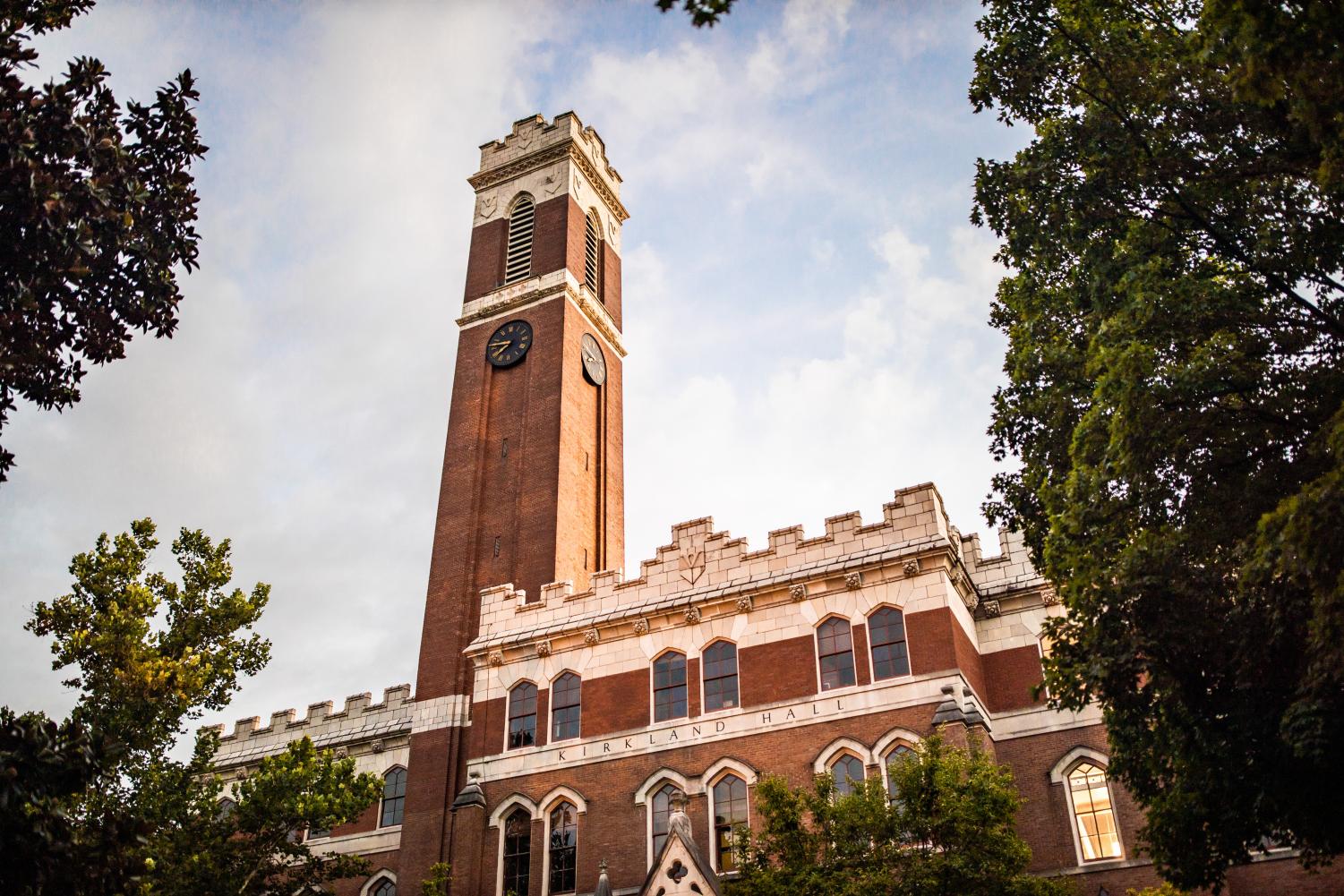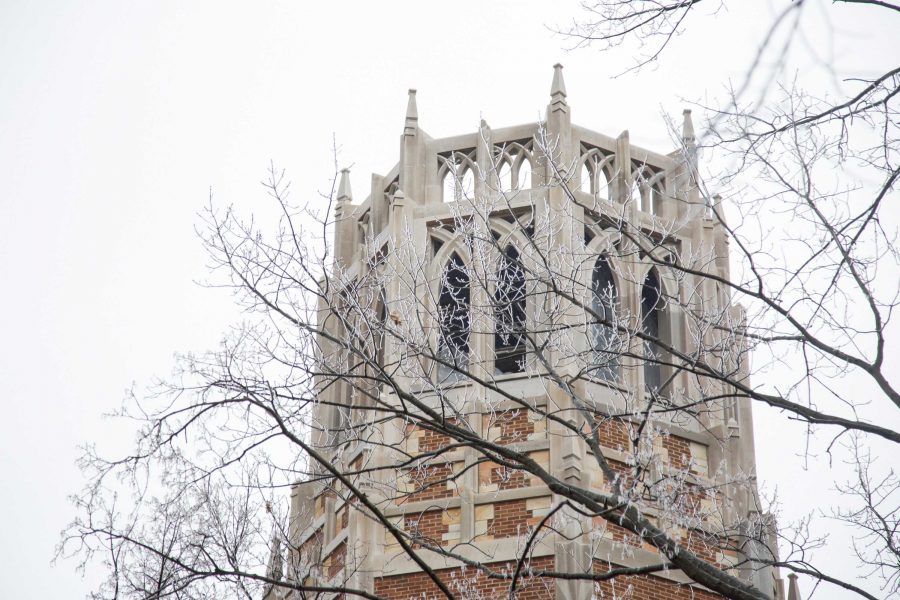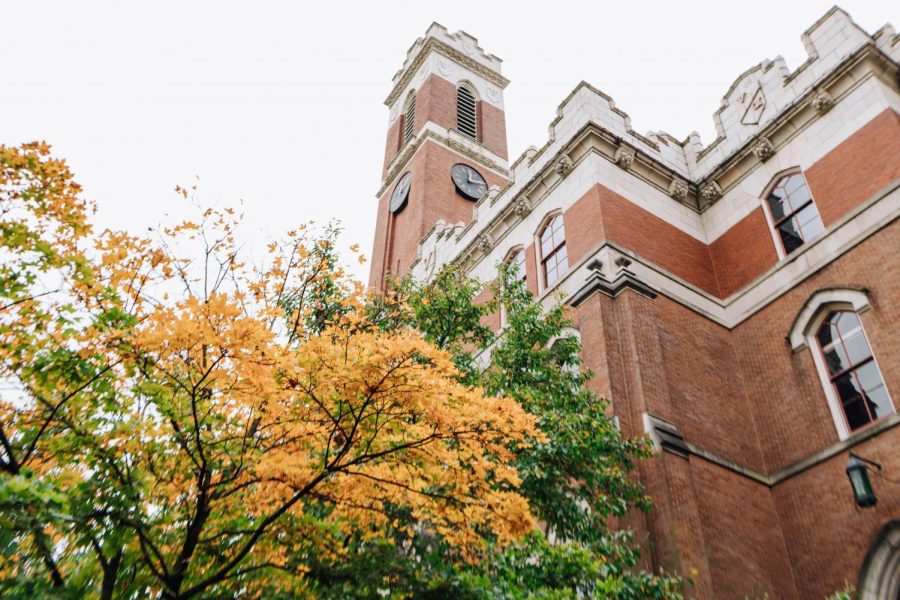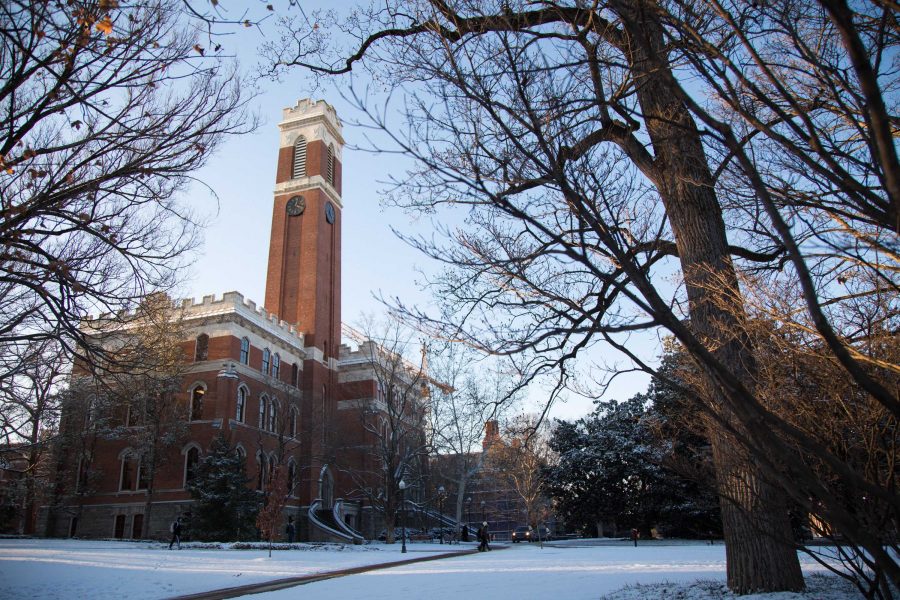Editor’s Note: The Hustler will refer to the 2019-20 Academic Year Senate and its senators as the VSG Senate and senators throughout this piece. Their current status as senators is under dispute.
Vanderbilt Student Government (VSG) has extended the voting deadline for VSG Senate Elections by one day, from noon on Sept. 16 to noon on Sept. 17, in an email to the student body.
This decision comes after members of VSG believed there were technical issues with Anchor Link’s voting platform Sept. 15. The platform did not create parameters for the class-year senate race, which was a rank-choice ballot. This allowed students to potentially select more than five class-senate candidates and assign the same rank to more than one candidate, Speaker of the Senate Kate Petosa said.
While the voting data could not be analyzed on Anchor Link, Director of Student Organizations and Governance DeAnte’ Smith was able to export the data and discovered the votes had been recorded correctly, Petosa said in a Sept. 16 interview.
Smith said in an email to The Hustler that after a “thorough review,” they determined all the relevant information for tallying ballots was available in the Excel document.
“Everyone did vote correctly. And so [it’s] definitely a relieving process because it was very stressful, and no one wanted to do a revote because it affects voter turnout, but we wanted to make sure it was a legitimate election that had occurred,” Petosa said.
VSG expects to release the election results either Sept. 17 or 18, Smith said. They are also considering whether they will share the raw voting data after the results are announced, per Petosa.
“I would not be opposed to publishing it publicly for complete transparency purposes,” Petosa said.
Transition from Housing-based to Class-Year Voting
In the spring, Student Body President Veer Shah proposed Senate voting be done by class-year, according to Deputy Speaker of the Senate Rob Lusk.
Shah’s proposal of class-year voting has been implemented this year. Petosa confirmed that no bill was written for this change in process.
The VSG leaders wanted to provide an equitable representation of Senators on campus due to the change in residence halls in response to COVID, Smith said.
“We think there is (sic) less communities built around years once you get beyond your first year,” Lusk said. “He tried to mention it in the senate session, and the senate explicitly rejected it.”
Instead, VSG Senate passed the Ensuring Senate Continuity Act (ESCA), written by Senators Bryce Collings and Chris Marcus, in response to the uncertainty for the upcoming year, according to Lusk.
According to VSG Statutes, the senate consists of 5 academic senators and 22 residential senators.
“We had an alternative method that was set to be triggered if 20 percent of students were not on campus—that was just purely academic senators,” Lusk said.
Students who applied to live on campus or in off-campus housing in Nashville are considered to have assigned housing, per Petosa.
“It didn’t meet the constitutional requirement that they needed,” Shah said, referring to the 20 percent threshold.
Collings said in an email to The Hustler that the Senate was aware changes might have to be made when the university made a plan, but he hoped an emergency session would be conducted. Collings said the ESCA model not being triggered and subsequent use of the current model of class-year voting is to some extent unconstitutional.
There are approximately 3,570 on-campus, 2,460 off-campus and 1,000 remote undergraduates, according to a Sept. 2 email from a university spokesperson.
“That system was actually implemented against what’s stated on the books of VSG law—[Shah]’s system of having year senators,” Lusk said.
Lusk said that the Senate didn’t seek judicial court in response to the implementation of the class-year system because of the “unique circumstances.”
Candidates notified of issues with ballots
All candidates running for VSG Senate received an email from VSG Elections Commission Chair Jay Patel informing them of a technical issue with Anchor Link’s voting platform Sept. 15 at 5:55 p.m. CDT.
Candidates were informed Anchor Link’s system was incompatible with the class-senator rank-voting ballot through Patel’s email, sent hours after the ballots went live at 8:10 a.m. CDT on Tuesday morning. Academic and Remote senate races were not affected, per the email.
The Hustler obtained this email from an anonymous class-year senate candidate. The candidate was given anonymity due to protection from student organization repercussions.
Smith and the Elections Commission decided to use ranked-voting because they agreed it would be most democratic to allow students to have a vote for each of the five class-year senate seats, Petosa said.
“Given that the allocation had to change because the campus layout was so different, they then changed the voting to match, to make it the most fair form of voting, so that everyone gets to have a voice on who represents them on the senate body,” Petosa said.
Some senators took issue with the unprecedented use of the ranking system. Lusk said there was no official announcement to the Senate candidates about the use of rank choice voting.
“We haven’t had a ranked-choice as long as I’ve been at Vanderbilt,” Lusk said. “It’s not something we’ve ever done before.”
Senators Joseph Humphries and Chris Marcus said in an email statement, per VSG Statute 5.3.1, the vote must be done using a plurality vote.
“A simple search of plurality vote shows that this term implies each student may vote for only one candidate in the race, and the candidate with the most votes wins their respective election. Therefore, the option to use rank choice voting was not constitutional,” Humphries and Marcus said.
Patel’s email stated VSG would be holding a revote for class-year senators, scheduled to begin on Sept. 17. The Elections Commision and Smith later decided the revote was unnecessary and extended the election instead.
“It had seemed like the data would be indiscernible and unable to use, and so that we might be forced to have to do a revote for the year elections in order to have a fair election,” Petosa said.
Emergency meeting of senators
The emergency senate meeting originated in a Google Hangout with several former and current senators discussing the implications of the election, according to Lusk.
“We just started reflecting on the fact that so many things had gone wrong with the election, thus far,” Lusk said.
Eventually, as more people joined the call, the senators moved to Zoom, according to Lusk.
“There were several senators who decided they wanted to convene an emergency session because the only way they saw to alleviate all of these legal issues was to legislate new law,” Lusk said.
The Senate called an emergency meeting around 8 p.m. CDT on Sept. 15. Thirteen people were present at the outset of the meeting.
“We, the Senate, decided that allowing every candidate to serve as senator for a year and then reverting back to the previous seat allocation system, which was last used in the academic year of 2019 -2020 was a viable option,” Collings said. “A referendum goes directly to the students, so in essence, we decided to allow the students to choose what would happen next.”
Petosa entered the Zoom meeting around 20 minutes into the session. She reiterated the claim that the votes were “messed up.” Since this meeting, Petosa said Anchor Link had made it appear as if the data was incorrect but the raw voting data was valid.
After Petosa left the meeting, the senators continued and added an amendment proposed by Senator Marty Grady.
Grady, serving as a proxy to Senator Will Fritzler, proposed an amendment to ESCA, giving VSG’s Elections Commission until Friday to determine the results of the race. If the commission is unable to effectively do that, a referendum would be sent to the student body calling for all candidates to be awarded a seat. The amendment passed by an 11-2 vote, according to the Zoom recording.
Fritzler is The Hustler’s sports copy editor.
Petosa called into question the legitimacy of this emergency session due to the lack of notice and because senate turnover took place last spring.
“I just got this text that they were meeting and that they had already written up this bill and everything,” Petosa said. “I just don’t see this as a legitimate senate session.”
Lusk said emergency sessions are declared using internal Senate rules, which are not based in the VSG Constitution or Statutes.
“We constitute a session as a gathering of a quorum of senators, and a quorum, according to the Constitution, is two-thirds of the sitting Senators,” Lusk said.
Lusk provided a list of the 27 senators for the 2019-20 Academic Year to The Hustler. Lusk said 16 of those 27 would be considered “voting members of the VSG Senate,” citing VSG statute 2.1.8 and Article I Section III Clause 2 of the VSG Constitution. Lusk then cited Article IV, Section III, stating that the Senate would need two-thirds of the 16 “voting members” to have a quorum.
“I don’t think that’s quorum because you have to have two thirds and it’s a 27-person body, so (sic) they’re 15 people,” Petosa said.
Additionally, Shah said Petosa should be present at meetings.
Citing VSG statutes 2.1.2.2, Lusk said the deputy speaker could preside over the Senate in the absence of the Speaker of the Senate.
Senators’ term lengths are also under dispute. Historically, the senate has not met between the turnover meeting in the spring and when senators run for reelection in the fall, Petosa said.
“It also wouldn’t make sense, because nothing in the constitution talks about summer,” Petosa said. “The only people that are generally in play during the summer are the presiding officers elected to run each branch and the people who were confirmed in the last senate session.”
Collings argues that there is nothing written in the statutes or the VSG Constitution that says senators lose their roles over the summer.
“I think it is unfair to say that over the summer and then before elections, the student body loses its voice through the legislative branch. If we look at any democracy they have three things: a judicial branch, an executive branch, and a legislative branch. There is not a period where one or two of these stop existing,” Collings said.
Petosa also expressed, under her interpretation of the constitution, that the meeting being held was not official.
“When the school year ends, those constituents are no longer the constituents,” Petosa said. “So like, people move academic halls, generally, people graduate, senators graduate, new people come in—the constituencies are different. And this constituency this year has not elected those people to represent them.”
A question of constitutionality
Following the events on the night of Sept. 15, Patel sent another email to all the candidates at 11:10 a.m. CDT on Sept. 16 stating that the amendment passed by the emergency senate meeting was invalid.
“I was informed of a candidate meeting yesterday, and the Elections Commission recently met with Judicial, Executive Board and the VSG advisor. All of us have unanimously agreed that this was not a legitimate meeting of the VSG Senate,” Patel said in the email. “These candidates do not have the authority to unilaterally change the VSG constitution. For these reasons, please ignore the recent emails from the candidates concerning a bill.”
Patel also informed the candidates they should continue campaigning until polls close at 12 p.m. CDT, and that Smith would determine whether a manual recount of the ballots could achieve an accurate representation of the results for the class-year senate races.
Humphries and Marcus said that they believe there is no way to fairly salvage the data from this election and were not in favor of a revote.
“A reelection would be 1) unconstitutional, 2) unfair to candidates who have focused a large amount of energy on campaigning, and 3) damage VSG’s reputation on campus,” Humphries and Marcus said.
Patel sent another email to them at 12:45 p.m. CDT, informing the candidates that students voted correctly despite the technical problems and that there is no need for a revote. Additionally, the email informed candidates voting has been extended for all races until Sept. 17 at 12 p.m. CDT.
“I am personally concerned about the results of the election. I am specifically concerned regarding the races for class year seats and how the votes will be calculated due to a lack of transparency at the current moment,” Collings said. “The situation overall has developed with very little shared to candidates regarding what is occurring. From what we were told last night during the emergency session to what was sent this afternoon in Patel’s email were two very different things.”
Petosa said there have been other election mishaps in the past that have resulted in a revote and is glad the results from this election can be interpreted.
“There’s definitely been issues in the past with senate things happening, because unfortunately, Anchor Link sometimes has issues, or candidates get on the wrong ballots or things happen so this isn’t the first time there’s been issues with elections, unfortunately,” Petosa said. “I would say I’m personally very relieved to find out that the data is all valid and that we won’t have to do a revote. Nobody wanted to do that.”













